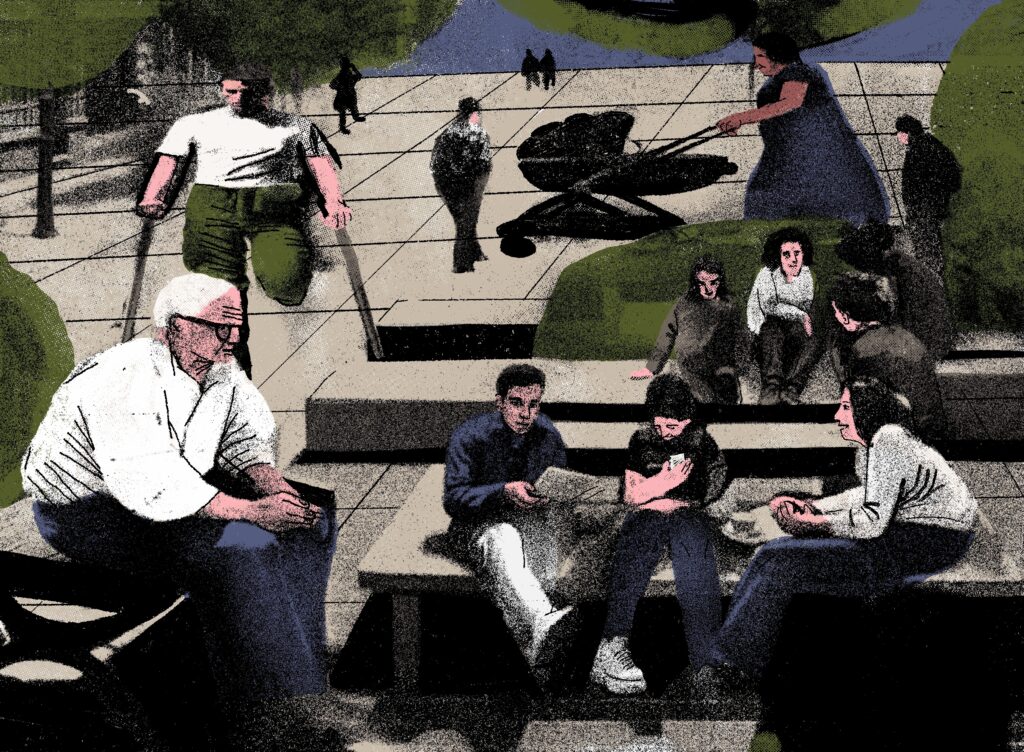
All those killed by Russia in its war against Ukraine are forever in our memory.
Our work is possible thanks to the defenders of Ukraine, who give their life force, comfort, health, time, and even their lives so that all of us may have freedom and life. Thank you!
The year 2023 was a time of growth and challenges for us. Unfortunately, the war had exacerbated social problems and created new ones. As a result, the demand for our work increased. To meet these challenges, Cedos worked hard on its growth. In 2023, the organization increased in size by 2–3 times across various parameters. This led to the need to streamline our processes and strengthen our capacity. A separate challenge in this regard was the security and psychological impacts of the war.
A key research priority for Cedos in 2023 was the analysis of the social consequences of the war and options for responding to them. We strengthened our advocacy work, particularly through cooperation with government bodies and international institutions. After the end of the COVID-19 quarantine, offline events resumed. We worked to identify and highlight the needs of local authorities in addressing various social problems.
A special focus for Cedos this year was strengthening the capacity of territorial hromadas. We began working to assist local self-government bodies in establishing processes for involving residents in decision making, developing community and cultural centers as infrastructure for enhancing social cohesion, as well as conducting research at the local level. In 2023, Cedos launched its first subgrant programs for local civil society organizations.
A few key figures. In 2023, Cedos worked on 22 projects. A total of 26 people were involved in project teams. Throughout the year, we published 6 research reports, 4 policy briefs, 9 articles, 11 opinion columns, and 16 podcast episodes. We organized 22 public events in total (of which 3 were held offline and 19 online). During the year, Cedos collaborated with 23 territorial hromadas. Over 28,000 people are subscribed to our pages on Facebook, Instagram, Twitter, LinkedIn, and our email newsletters. In 2023, the reach of our publications on social media and via email newsletters exceeded 1.2 million people. In traditional media, including television, radio, podcasts, and online outlets, we were mentioned more than 350 times.
We thank our donors and partners for their trust, as well as everyone who donates to our work, friends, colleagues, respondents, readers, listeners, event participants, and all who have been with us!
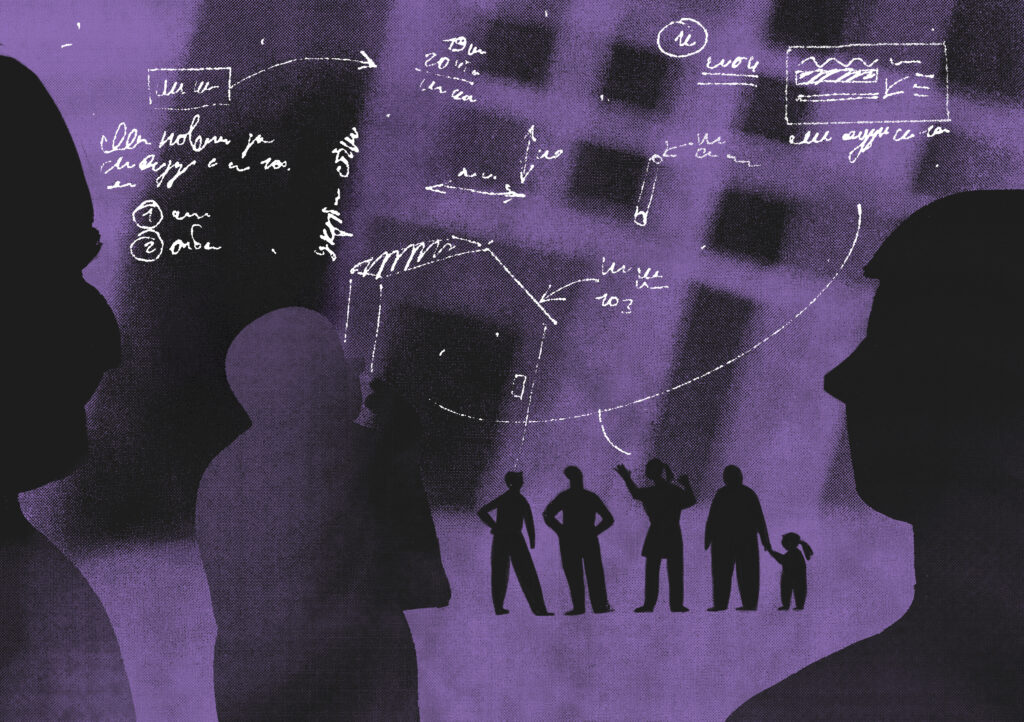
Mission
We believe that every person is entitled to a decent standard of living. That is why the goal of Cedos is to search for the systemic causes of social problems and ways to solve them.
Our approach is research-based. We study social processes and public policies, spread critical knowledge, promote progressive changes, educate and strengthen the community of supporters of these changes. We believe that in this way we can influence discourse, public discussion, and decision making. This changes government policies and improves human lives in the real world.
The key topics Cedos works on today are education, migration, urban transformations, housing, and social protection. In addition, our areas of interest also include subjects such as democracy, employment, security, climate change, and culture.
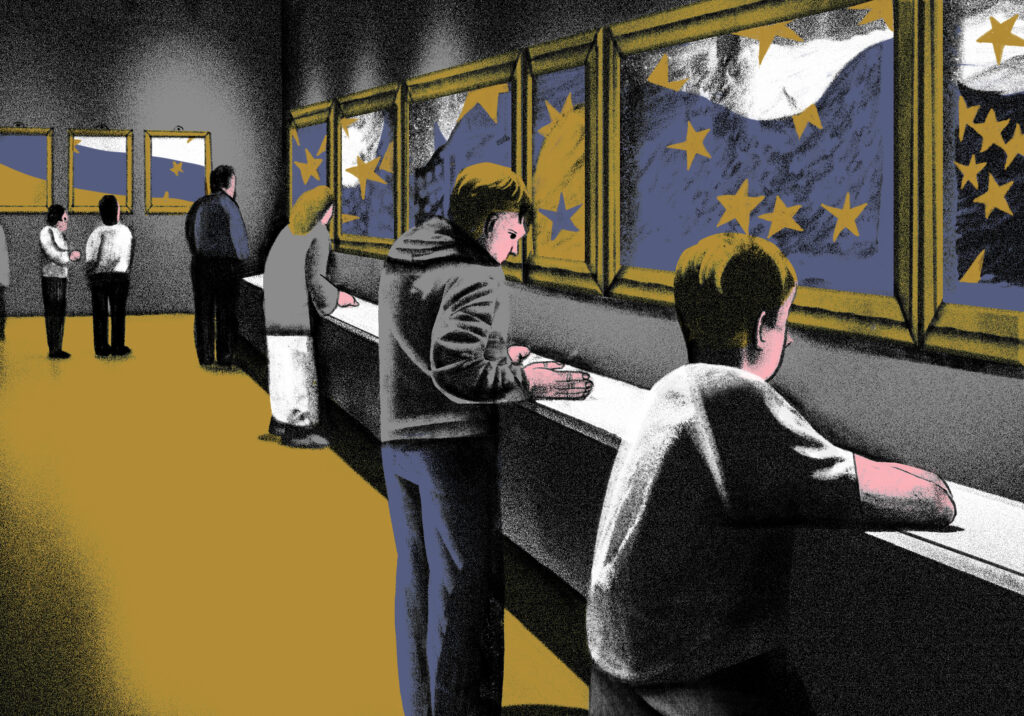
Research and Analysis
Research and analysis are the foundation of Cedos’s work.
In 2023, we continued our work on researching the experiences of living through the war in Ukrainian society. During the first year of the full-scale invasion, the initial four waves of this study captured people’s thoughts, experiences, and actions every three months. The fifth wave summarized these efforts, collecting data about the first year after February 24, 2022. Describing and generalizing the experiences of living through the war makes it possible to capture social processes and transformations under extraordinary circumstances, which serves as a foundation for further research, theorizing, and planning transformational changes.
For the anniversary of the full-scale invasion, Cedos prepared a policy brief on housing policy during the first year of the full-scale war. This document summarizes key trends and challenges in the housing sector and provides an overview of the main changes in government policy.
Together with partners, we took part in conducting the annual youth study in Ukraine for 2022, which consisted of a national survey and a series of focus group discussions and in-depth interviews. This made it possible to document the impact of the war on changes in trends and to develop recommendations for adapting state youth policy to the needs of wartime.
At the request of our partners, Cedos analyzed the impact of the full-scale invasion on secondary education. The study included a national survey of parents of school-aged children, analysis of secondary data, and case studies of 6 hromadas from Kyiv, Chernihiv, and Kharkiv Regions. The result of the project was conclusions about the challenges the war has caused for the education system, as well as recommendations for planning the recovery of schools in hromadas.
Commissioned by our partners, we prepared a series of 8 policy briefs on the social impact of the full-scale invasion. They examined the situation of internally displaced persons, people with disabilities, women and LGBTQI+ people, veterans and their families, elderly people, youth, as well as issues of volunteering, activism and civic participation at the local level, and activation of employment. The project included an overview of the war’s impact, identification of needs, and the development of recommendations for donors and government bodies regarding policy changes and investment. The results of the analysis formed the basis for the population impact assessment in the third Rapid Damage and Needs Assessment for Ukraine (RDNA3).
Cedos conducted a study on the impact of the full-scale invasion on the working conditions of professors in higher education institution, using the city of Dnipro as an example. Based on the analysis of secondary data and focus group discussions, we drew conclusions about the consequences of the war and their gender aspects, and formulated proposals for the directions of possible changes.
Based on focus group discussions, we analyzed the impact of the war on the working conditions of social workers and schoolteachers. Two studies conducted on this topic made it possible to assess the trends that emerged or intensified after the beginning of the full-scale invasion and to propose recommendations for improving the working conditions of critically important workers.
At the request of our partners, Cedos studied the work of the psychological service in schools in the context of the full-scale invasion. Focus group discussions and expert interviews formed the basis for analyzing working conditions and the content of the work, as well as the impact of the war on the work of psychologists in secondary education institutions. The results of the study also included recommendations for improving the effectiveness of the psychological service.
Commissioned by our partners, we analyzed the transformation of connections in the field of visual art under wartime conditions — both among Ukrainian artists and in relationships with foreign institutions. Based on in-depth interviews and the results of a conference, the issues were described and recommendations for the development of sustainable cooperation were developed.
Commissioned by our partners, Cedos conducted a study on satisfaction with social services among those who receive them. Based on in-depth interviews, we collected feedback on the provision of the services of home care, day care, social adaptation, social accompaniment, and crisis and emergency intervention. The analysis of these data made it possible to draw conclusions about the needs of social service centers which must be met for the proper implementation of state social policy.
At the request of partners, we studied the needs and challenges related to the provision of social services to veterans in hromadas. Through the analysis of legislation and in-depth interviews, the capacity of the social services system to help veterans successfully reintegrate into society and adapt to civilian life was outlined. Based on the study, conclusions were developed for planning and advocating relevant government policies.
Considering the importance of European integration, Cedos prepared two policy briefs on Ukraine’s readiness for EU accession in the fields of social policy and employment, and education and culture. Based on the analysis of the European Commission’s conclusions and other documents, these texts introduce the Ukrainian audience to the specifics of EU policies in the respective areas, as well as the expectations regarding the alignment of national legislation with EU law.
Commissioned by our partners, we studied the provision of social services in hromadas by non-governmental organizations. The analysis of legislation, administrative data, and in-depth interviews made it possible to analyze the current situation regarding the involvement of non-state providers, in particular non-governmental organizations, in the provision of social services. The study identified aspects of this interaction that require attention in order to improve the existing model of cooperation.
At the request of our partners, Cedos conducted a study on commuting in Vinnytsia. A representative quantitative survey made it possible to describe the commuting practices of employed city residents, learn the main characteristics of their employment, and assess the importance of factors related to commuting when choosing a job. These data were necessary for spatial planning and mobility management in the city.Throughout the year, we also analyzed and commented on current events, including the renewal of the New Ukrainian School reform, the importance of social cohesion and civic participation for democratic recovery, the principles of Ukraine’s recovery, the significance of vocational education and retraining.
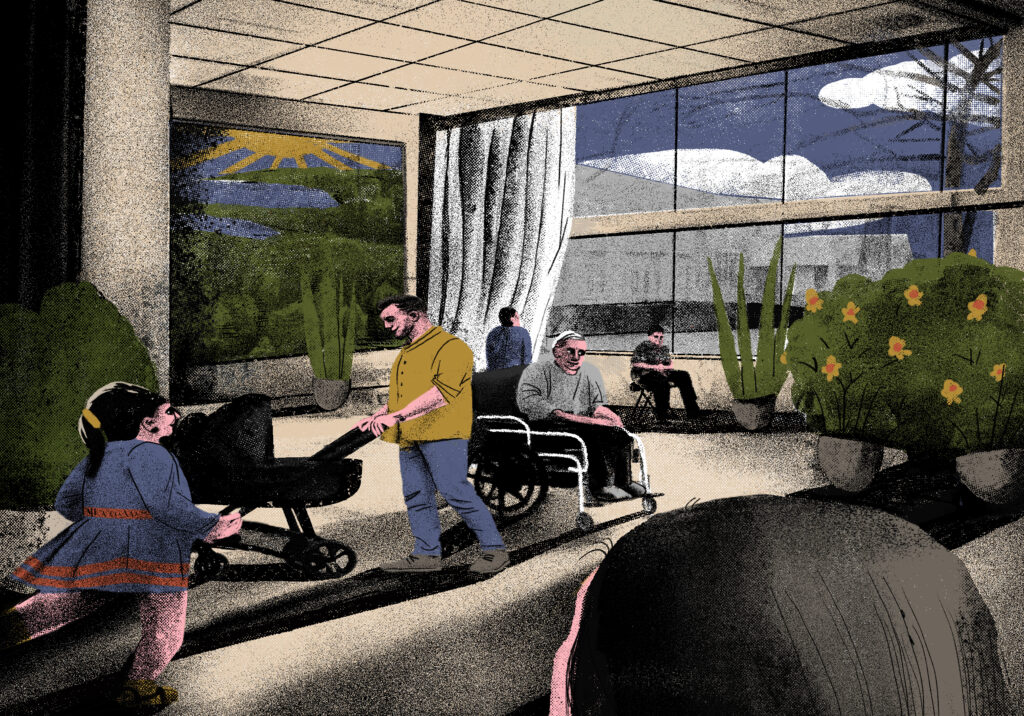
Urban Research
The challenges of the war and the need for recovery from its negative consequences faced by territorial hromadas in Ukraine caused Cedos to resume active work in 2023 in the field of urban research and the promotion of civic participation at the local level.
In July, for the first time since the start of the full-scale invasion, the Ukrainian Urban Forum took place. The event was held for the fifth time. After a break caused by the COVID-19 pandemic, during which the forum was held online and in a hybrid format, the 2023 event was once again held offline over two days. The location was Vinnytsia. The theme of the forum, which brought together several hundred participants, was Shared Home: the issues around the concept of home and housing policy were central this year. In addition to presentations and panel discussions, the event included several workshops, tours, as well as activities for introductions, networking, and informal communication. Forum participants signed a Declaration outlining key principles for the recovery and development of Ukrainian hromadas.
The online journal of the Ukrainian urban platform Mistosite continued its work. In 2023, 9 articles and 3 excerpts from various printed publications were released. The website’s annual audience totaled over 27,000 users. The Urbanism UA Facebook group, created and moderated by Cedos, had over 3,600 members.
The project Leave No One Behind: Civic Participation for Community Recovery Planning became the organization’s key effort in this field. It involved conducting six workshops and two online events, recording three educational videos, and developing a handbook with methodological recommendations on involving residents in decision making in hromadas. The foundation of the project was the work of experts with 10 territorial hromadas selected through a competitive process. At the request of the hromadas, we helped develop a strategy for involving residents in solving a specific issue relevant to their community, as well as holding the first engagement events, based on which we provided local self-government bodies with recommendations for further steps. The experience of this consultation work, aimed at strengthening the capacity of hromadas to involve residents in addressing local issues to enhance social cohesion, is described in a reflection report.
Considering the large number of applications to participate in the project, which exceeded our capacity, Cedos launched the project Trust Through Participation: Informing and Strengthening the Capacity of Hromadas. It involves consulting territorial hromadas from the southern and eastern regions of Ukraine using the same methodology, as well as releasing a podcast and publishing articles to promote the idea of residents’ involvement in addressing local issues. In 2023, an open call for participation in the project was held, resulting in the selection of 10 partner hromadas.
At the request of partners, we facilitated thematic strategic sessions on the development of the areas of social protection and security as part of developing strategies for the Lutsk and Zviahel Territorial Hromadas.Together with partners, Cedos began to work on the Community reBuilding project. To strengthen social ties and cohesion at the local level, the project helps territorial hromadas create or renew “community-building centers,” which are socially and spatially inclusive community and cultural centers. Out of more than three hundred applications submitted to the open call, 10 hromadas were selected to receive mentoring support and grants of 1 million hryvnias each for the renovation of the spaces of the community-building centers and their program activities. The project’s public program consists of 6 online seminars on important aspects of the work of community and cultural centers, available both to the grantees and to a broader audience of interested participants.
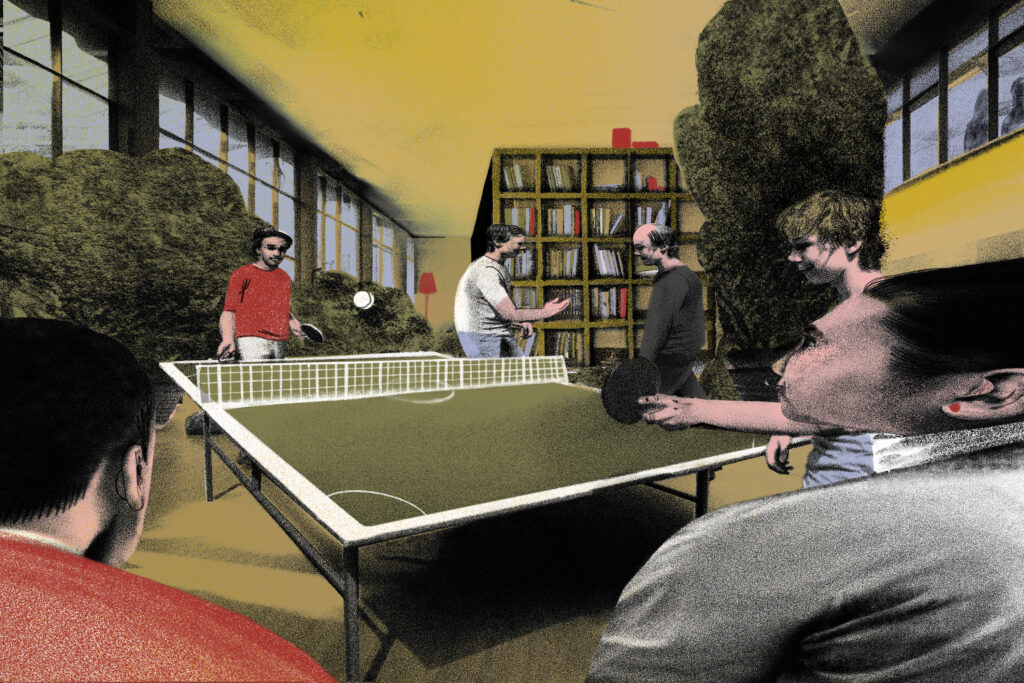
Community of Change
Alongside research and analysis, Cedos’s mission also includes spreading knowledge, enriching the socio-political discussion, and strengthening the capacity of social movements, the government, media, and expert communities.
We not only publish research and policy briefs, but also send them to the responsible government bodies, organize public presentations and discussions, disseminate them through various social media, and publish brief conclusions in the media.
Throughout the year, Cedos participated in meetings of an informal working group that was preparing a draft law on the fundamental principles of state housing policy. As part of this work, we prepared a policy brief with recommendations for this draft law based on an analysis of international recommendations and the experience of other countries. In addition, at the request of the Ministry for the Development of Communities, Territories and Infrastructure, Cedos facilitated a two-day field session meeting of the working group, which made it possible to align the visions of its various participants regarding the goals of housing policy and the key principles of its implementation.
We also held the Housing Leadership Lab, a three-day offline seminar for leaders in the housing sector. Representatives of national government bodies, local self-government, and civil society had the opportunity to build closer connections, present the results of their work, exchange experiences in addressing similar issues related to housing, and formulate joint recommendations on changes needed for the development of housing policy. The key results of the event are summarized in a report.
As part of the UA Transformation Lab project, Cedos, together with partners, held an open call for civil society organizations to implement research projects in hromadas. Out of more than 50 applications, three organizations were selected to receive mini-grants of 5,000 euros and mentoring support for conducting research on topics relevant to their hromadas. Within this project, the first of a series of three online seminars also took place, dedicated to the selection of research methods.
Together with our partners, we also held two events for exchanging experiences between Ukraine and Germany on humanitarian aid and the integration of people who were forced to leave their homes due to the war into host communities.Cedos continued producing podcasts. In 2023, a new podcast titled Public Hearings was launched, dedicated to issues of civic participation at the local level, with the first 4 episodes published. As part of the new season of the urbanism podcast The Market Will Solve It?, 7 episodes were released. In addition, 5 new episodes of the Think Tank podcast were published.
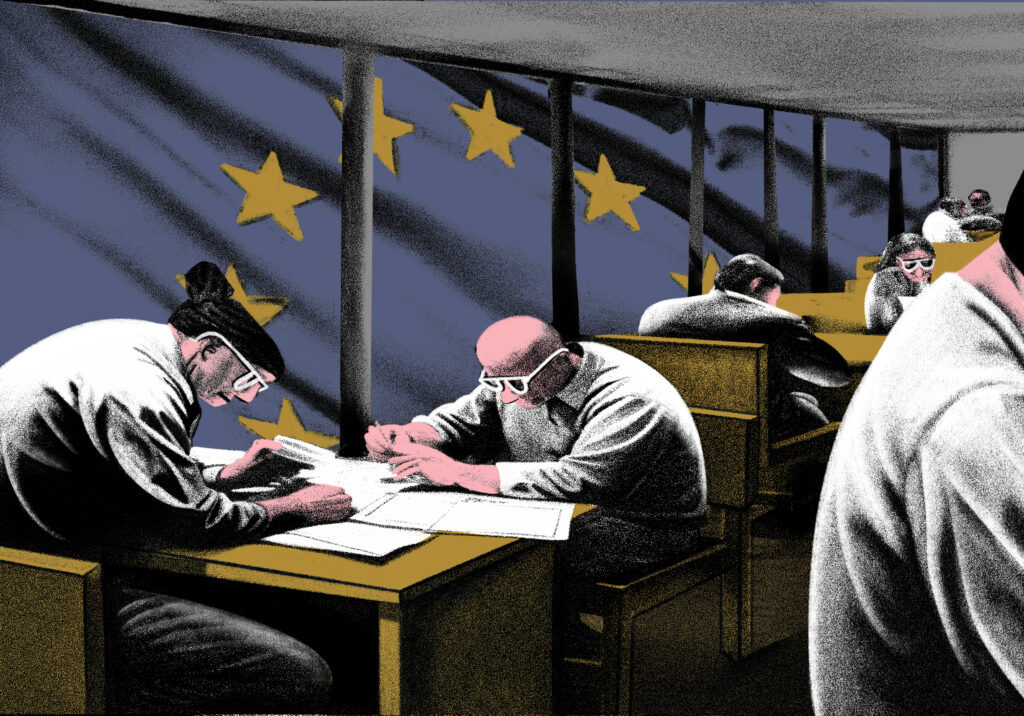
Acknowledgements
In 2023, the Cedos team included: Alina Khelashvili, Anastasiia Bobrova, Anna Vorobiova, Daryna Nikolenko, Daryna Vilkhova, Inna Ryk, Iryna Bezvershenko, Iryna Kohut, Ivan Verbytskyi, Kateryna Babych, Lorina Fedorova, Mariana Kuzemska, Maryna Bakaienko, Natalia Lomonosova, Oksana Buts, Oleksandr Pryma, Olena Prykhodko, Olena Syrbu, Olesia Budz, Olha Polishchuk, Tamara Khurtsydze, Tetiana Zheriobkina, Uliana Dzhurliak, Valerii Miloserdov, Yaroslav Onyshchuk, Yelyzaveta Khassai, Yuliia Kabanets, Yulia Nazarenko.
Our partners, donors and clients in 2023:
- Association for Participatory Community Development;
- Black Sea Trust for Regional Cooperation;
- Chemonics International;
- Council of Europe Office in Ukraine;
- Deutsche Gesellschaft für Internationale Zusammenarbeit;
- Embassy of Sweden in Ukraine;
- Embassy of the Netherlands in Ukraine;
- Equal Opportunities Platform;
- Federal Foreign Office of Germany;
- Friedrich Ebert Stiftung;
- Heinrich Böll Stiftung;
- Human Rights Center Pryncyp;
- Info Sapiens Research Agency;
- International Renaissance Foundation;
- Institut für Auslandsbeziehungen;
- Institut für Europäische Politik;
- Hmarochos Magazine;
- moveGLOBAL e.V.;
- Periféria Policy and Research Center;
- Polish Solidarity Fund;
- Pro.Svit Center for Innovative Education;
- SavED Charitable Foundation;
- Spatial Development Agency of the Vinnytsia City Council;
- Ukrainian Women’s Fund;
- Ukrainian Institute;
- U-LEAD with Europe Programme;
- United Nations Development Programme;
- United Nations High Commissioner for Refugees;
- United Nations Population Fund;
- United States Agency for International Development;
- Vidnova Programme;
- Western NIS Enterprise Fund;
- World Bank;
- ZMIN Foundation.
In 2023, Cedos cooperated with Bilokurakynska, Bilotserkivska, Blyzniukivska, Chortkivska, Horodotska, Dobroslavska, Dunaievetska, Karlivska, Kovelska, Kosivska, Krasnokutska, Lutska, Nizhynska, Ovrutska, Poromivska, Romenska, Serhiivska, Snihurivska, Shabivska, Valkivska, Velykopysarivska, Vinnytska, Zvyahelska hromadas.
We also cooperated with the Ministry for the Development of Communities, Territories and Infrastructure of Ukraine.
Thank you for your cooperation and support!
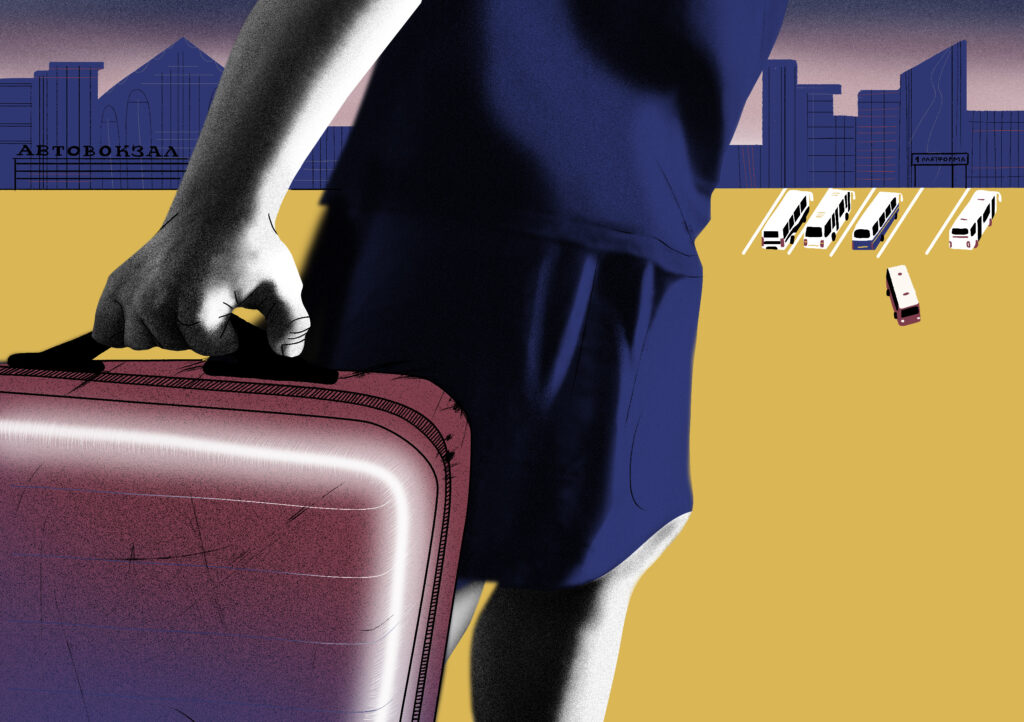
Finances
Cedos NGO funding sources in 2023:
| Donor or purchaser | USD |
| Western NIS Enterprise Fund | 287 571 |
| Deutsche Gesellschaft für Internationale Zusammenarbeit | 109 159 |
| World Bank | 63 820 |
| International Renaissance Foundation | 53 713 |
| Heinrich Böll Stiftung | 43 070 |
| Chemonics International | 30 186 |
| Institut für Europäische Politik | 18 360 |
| Institut für Auslandsbeziehungen | 2 430 |
| Embassy of the Netherlands in Ukraine | 2 160 |
| Black Sea Trust for Regional Cooperation | 1 480 |
| Periféria Policy and Research Center | 1 296 |
| ZMIN Foundation | 438 |
| Council of Europe Office in Ukraine | 360 |
| Charitable donations from individuals | 207 |
| Total | 614 250 |




